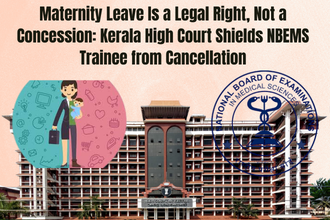In a significant development in the high-profile Palakkad murder case, the Supreme Court of India on April 16, 2025, declined to entertain the National Investigation Agency’s (NIA) plea seeking the cancellation of bail granted to 17 Popular Front of India (PFI) members. These individuals stand accused in the murder of RSS worker Srinivasan, which took place in April 2022 in Kerala’s Palakkad district.
The apex court, while hearing the Special Leave Petitions (SLPs) filed by the NIA, directed the agency to approach the Special Court or the High Court instead, deeming these as the appropriate forums for adjudicating such matters.
Background: The Srinivasan Murder Case
The case pertains to the killing of RSS member Srinivasan, a prominent figure of the Rashtriya Swayamsevak Sangh (RSS) in Palakkad. His murder, allegedly orchestrated by individuals associated with the now-banned Popular Front of India (PFI), was part of a larger sequence of communal and retaliatory killings in Kerala during that period.
The incident sparked widespread outrage and political polarization in Kerala, prompting the NIA to take over the investigation, citing national security implications and the larger organizational role of the PFI in orchestrating violence.
NIA’s Plea for Bail Cancellation
The NIA approached the Supreme Court challenging the Kerala High Court’s decision to grant bail to 17 accused members of the PFI. According to the agency, these individuals had violated bail conditions, which included:
- Contacting witnesses and co-accused persons via phone
- Using multiple mobile numbers, contrary to the bail condition of using a single number
- Switching off mobile phones to avoid surveillance
These alleged actions, the NIA argued, not only violated court-imposed restrictions but also posed a serious threat to the integrity of the ongoing investigation.
Supreme Court’s Observations
A bench comprising Justice Abhay S Oka and Justice NK Singh heard the matter. The judges observed that the Special Court under the NIA Act or the Kerala High Court itself would be more competent and appropriate to examine whether the bail conditions were breached and if cancellation was warranted.
In its order, the Court stated:
“Therefore, at this stage, we decline to entertain these SLPs with liberty to the petitioners to move the Special Court or the High Court for cancellation of bail.”
The bench also clarified that if the NIA fails to get a favorable decision from the lower courts, remedies before the Supreme Court would still remain open. Furthermore, the Court emphasized that its refusal to entertain the SLPs should not influence the Special Court or the High Court in making an independent assessment of the facts and legal merits of the bail cancellation plea.
Legal Significance of the Ruling
The ruling underscores the judicial principle of hierarchy and procedural propriety. While the Supreme Court has the authority to intervene in matters of national importance, it often emphasizes the necessity of exhausting remedies before lower courts. This decision is a reaffirmation of that principle.
Moreover, it demonstrates the Court’s reluctance to override High Court decisions unless there is an egregious error or miscarriage of justice. In this case, since the Kerala High Court had explicitly granted liberty to the NIA to seek bail cancellation if conditions were violated, the apex court saw no reason to bypass that opportunity.
Reactions and Legal Representation
The NIA was represented by Additional Solicitor General (ASG) Raja Thakare, who reiterated the agency’s concerns about the risks posed by the accused being out on bail.
On the other hand, the accused were represented by a team of senior advocates, including R Basant, K Parameshwar, and Aditya Sondhi, who argued that the High Court’s decision was legally sound and that the NIA had sufficient legal recourse without invoking the Supreme Court’s jurisdiction prematurely.
What Lies Ahead?
The Supreme Court’s direction effectively pushes the legal battle back to the Special Court or the High Court, where the NIA must now provide concrete evidence of bail violations. The onus is on the agency to prove:
- The nature and impact of the alleged bail breaches
- The potential threat posed by the accused to the witnesses or the public
- The necessity of revoking bail to ensure a fair trial
Meanwhile, the bail applications of other accused individuals who are currently in custody are scheduled to be heard in May 2025. These hearings will likely set the tone for the future course of the case.
Broader Implications
This case is emblematic of the tensions between national security investigations and individual liberty. The involvement of a banned organization like the PFI, coupled with political affiliations of the victim (RSS), makes this a politically sensitive and socially charged issue in Kerala and beyond.
It also brings into focus the role of investigative agencies like the NIA, whose requests for bail cancellation are often viewed through a lens of balancing state interest with personal freedom. The courts must walk a tightrope between protecting civil liberties and ensuring justice for victims of serious crimes.
Conclusion
The Supreme Court’s refusal to entertain the NIA’s bail cancellation plea in the Kerala RSS member’s murder case is not a setback, but a redirection. By advising the agency to pursue its legal remedies before the Special Court or High Court, the Court has upheld judicial discipline and the hierarchy of courts.
As the legal proceedings continue in the lower courts, all eyes will be on how the NIA substantiates its claims of bail violations and whether the courts will ultimately revoke the bail granted to the accused PFI members.


